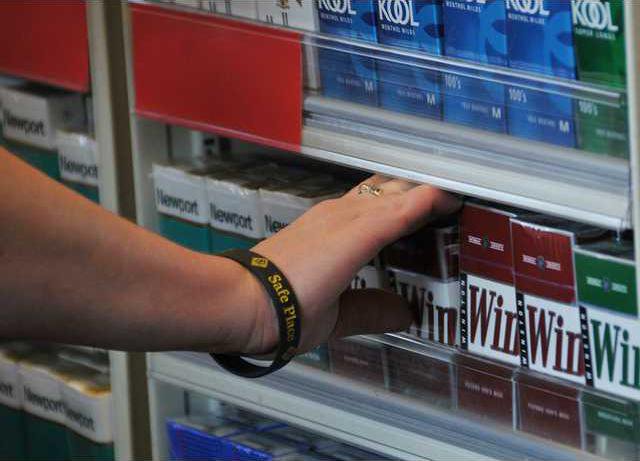On April 1, the federal tax on cigarettes will jump from 39 cents per pack to $1.01. Not surprisingly, many smokers would like to stock up on cigarettes now, to save a little money before the price increase goes into effect.
But that strategy has been thwarted by major tobacco companies, who already have raised prices on their products. Since the feds won’t start collecting the tax until April 1, for now the extra money is going into the pockets of the companies, reportedly to pay taxes on their own stockpiled inventory.
Kenneth Head of Gainesville, a lifelong smoker, was outraged when he went to buy cigarettes last week.
"I paid $54 for a carton of Camels," he said. "A month ago, it was about $42."
Head might have had to pay even more if a bill to raise the state tobacco tax by $1 per pack had been passed by Georgia General Assembly. But the legislation didn’t come up for a vote in this year’s session.
Head said state and federal governments seem to consider smokers an unlimited source of revenue, and he’s tired of it.
"Nobody speaks for the smoker," he said. "We’re considered second-class people. They’ve backed us into a corner, and they tax us to death. But we have rights just like everyone else. We have feelings, too."
The tax increase is intended to help pay for an expansion of the State Children’s Health Insurance Program, which includes Georgia’s PeachCare for Kids.
Epidemiologists also estimate that the higher prices may motivate as many as 1 million smokers to quit, which could help control health care costs.
Head said he doesn’t plan to quit.
"I’ve been smoking since I was 5 years old," he said. "I enjoy cigarettes."
Both he and his wife are disabled and on a fixed income, he said. But Head doesn’t want to switch to a cheaper brand to save money; he’s been loyal to Camels for six decades.
"That’s what I’ve always bought," he said. "The off brands are full of junk and fillers."
But as the recession eats into consumers’ discretionary incomes, some smokers will have to either give up their habit or settle for a generic brand.
Kerry Hicks, owner of the Smokin’ Fisherman in Clermont, said retailers won’t see any benefit from the tax increase.
"If everybody was to continue smoking what they’ve been smoking, our revenue would go up," he said. "But a lot of people will drop down to a cheaper cigarette brand. I also think people will get on the Internet and try to find a black market where they can buy tax-free."
Mike Thornbrugh, spokesman for the QuikTrip convenience store chain, said cigarettes eventually may become too expensive for some people to obtain through legal means.
"There’s no question that when you reach a certain price point, some people will quit or cut back," he said. "The other concern is that if you keep raising prices, you’re going to promote the growth of a black market."
That would be bad news for convenience stores. Thornbrugh said, on average, tobacco products constitute about 35 percent of a convenience store’s total inside sales.
"At QuikTrip, (the percentage) is not that high. We’ve shifted our focus to food," he said. "We can see the handwriting on the wall."
Darrell Wiley, president of the J&J Foods supermarket chain in Gainesville, said he will continue to sell tobacco products even as some grocery chains are de-emphasizing cigarettes.
"Tobacco is not a terribly profitable category, but it’s legal and it’s something my customers want," he said.
But for store owners, it’s a hassle. Wiley said with only about 10 days to go before the tax increase, he has not received any instructions from the federal government.
"All I know is my wholesaler told me we’d have to pay a floor tax on our inventory," Wiley said. "We were thinking we’d buy in advance (to stock up before the price increase), but there’s no advantage if we have to pay tax on that."
Wiley said he was surprised the tobacco companies didn’t wait until April 1 to raise their prices.
"I think it’s disingenuous of them to do this ahead of time," he said. "It’s a huge increase, and it’s on almost everything (tobacco-related)."
In the past, some consumers have resorted to rolling their own cigarettes to save money. But the government has changed the price structure so there no longer is any advantage to this method.
The tax on loose, roll-your-own tobacco currently is $1.10 per pound. As of April 1, it will be $24.78.
"It’s the largest tax increase I’ve ever seen," Wiley said.
Hicks said government officials apparently wised up to the fact that roll-your-own smokers were getting an enormous tax break.
"So they looked at how many cigarettes you can roll with a pound of tobacco, and they made the tax equivalent to how many cartons you could get out of that," he said. "Now you can’t save any money."
Wiley said the worst thing about the tax increase will be having to deal with the wrath of customers.
"People who haven’t heard about the increase will think it’s the store (raising prices), and they’ll blame us," he said.
Hicks said he’s already getting an earful from irate customers. They know it’s not his fault, but they feel compelled to vent their frustration.
Hicks cited some of the more memorable comments he’s received so far, including:
"I can’t believe (President) Obama did this while we’re in a recession."
"He’s giving us an extra $13 a week (by cutting the payroll tax), but then they’re taking it away from us on cigarette taxes."
"We paid for our children’s health care ourselves. Why can’t everybody else?"

